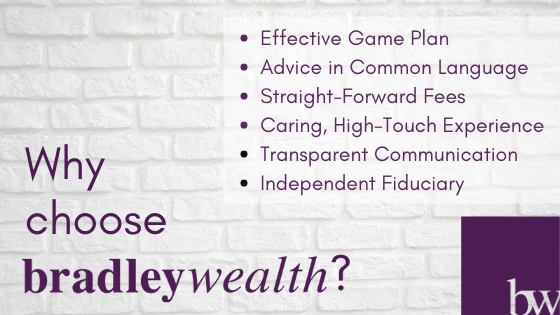It’s a Shopping Revolution!
Comedian Dave Barry wrote, “Once again, we come to the Holiday Season, a deeply religious time that each of us observes, in his own way, by going to the mall of his choice.” Not so much anymore.
On Black Friday 2019, many shoppers didn’t venture any farther than their favorite digital device. CNBC reported, “The pullback in brick-and-mortar stores mirrored a surge in Black Friday online shopping, which hit $7.4 billion, an all-time record for the day, according to Adobe Analytics.” There was some good news for brick-and-mortar stores. In-store sales on Thanksgiving Day were up 2.3 percent from a year ago.
Despite relatively strong retail sales, overall, major stock indices in the United States dipped on Friday for reasons unrelated to evolving business models in the retail industry. Indices trended lower for the same reason they have on numerous occasions this year: Investors were worried about a setback in U.S.-China trade talks. Barron’s explained:
“The Dow Jones Industrial Average, the S&P 500 index, and the Nasdaq Composite dipped on the final day of a boffo November. U.S. legislation supporting Hong Kong’s pro-democracy protesters, to which Beijing reacted furiously, dampened hopes that the highly anticipated phase-one trade deal with China would be inked soon.”
Despite losses on Friday, major U.S. indices were up for the week and the month, reported The Wall Street Journal. In November, U.S. stocks posted the strongest monthly performance since June. U.S. government bonds have been delivering positive returns, too. Interest rates on 30-year Treasuries have fallen over the course of the year and were down again last week. When bond rates fall, bond prices move higher. When bond rates begin to move higher, prices will fall.
It’s remarkable when stock and bond markets move in the same direction at the same time. Often, strong performance in one market is accompanied by weaker performance in the other.
Sources: Yahoo! Finance, MarketWatch, djindexes.com, London Bullion Market Association.
Past performance is no guarantee of future results. Indices are unmanaged and cannot be invested into directly. N/A means not applicable.
 Digital Assets
Digital Assets
Have you considered how to manage your digital assets as part of your estate planning? You probably have many digital assets, such as online accounts for your email, bank, brokerage, social media, photo and video sharing, website or blog, and domain name.
It’s likely your digital life will outlive you and become a part of your legacy. But, digital estate planning can be tricky. Many digital accounts and assets cannot be transferred to a new owner because they are not your property.
“Social network accounts, domain name registrations, email accounts, and most other types of online accounts are ‘yours’ by license only. When you die, the contract is over and the business that administers the account controls what happens to it,” explained Betsy Simmons Hannibal on Nolo.com.1
Your estate can leave instructions about account management and provide a complete record for your executor. Jeffrey Salas offered an opinion about best practices on LegalZoom.com. He recommended:2
- Work with your estate planning attorney and your digital executor to review providers’ Terms of Service/Terms of Use requirements. Leaving usernames and passwords for online financial accounts allows the executor to pay bills, close accounts, and administer your estate.1
- Some social media companies delete or deactivate accounts after being notified of a death. Others put accounts into ‘memorial’ status.1 Companies won’t know about the death until they’re notified, allowing a digital executor to access your account and post final updates, delete items (per estate instructions), or delete/deactivate accounts.1
- Email accounts, online communities, and blog management may also be guided by provider agreements. However, your executor may be allowed to notify friends or followers of your death and then delete, print, or archive your communications.1
- Digital photos stored online may be passed on through a will or another estate planning tool.1
- If you have one or more websites, domain names may have value and may be transferrable.1
- If you have an online store, you may want to leave instructions about what should happen to the store, the items for sale, and any income or profits that may continue to arrive.
To be safe, consider adding language regarding digital assets to your will and/or trust and specify your wishes for the treatment of each digital account. Talk with your attorney or advisor about laws in your state that apply to digital assets, and make sure your estate plan is consistent with any laws.2
If you would like additional information about estate planning, please give us a call.
Sources:
1 https://www.nolo.com/legal-encyclopedia/a-plan-your-digital-legacy.html
2 https://www.legalzoom.com/articles/what-happens-to-your-digital-assets-when-you-die
3 https://www.kiplinger.com/article/retirement/T021-C032-S014-put-digital-assets-in-your-estate-plan.html

]]>


 Digital Assets
Digital Assets ]]>
]]>